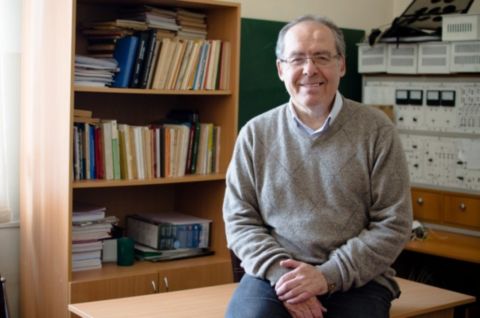SUSU Professor Vladimir Kodkin claims that Spain's energy crisis is caused by an overabundance of renewable sources. There is a threat of similar situations all over Europe.
Spain has recently been hit by a serious energy crisis caused by the overuse of renewable energy sources. Experts say the situation is caused by an imbalance between traditional sources and alternative sources of energy.
Professor of the Department of Automated Electric Drive at SUSU Vladimir Kodkin conducted a study showing that when the share of renewable energy sources exceeds 10%, there is a risk of instability of the entire energy system. In his work, published by a Swiss publishing house, he described in detail the possible consequences of exceeding the permissible norm of renewable sources. However, his findings were ignored by most Western publications, including the well-known Energies collected papers, despite the repetition of studies and the publication of articles in Russian scientific journals.
"The main problem is the unpredictability of natural factors that affect energy production," comments Professor Vladimir Kodkin. "For example, wind turbines depend on wind strength, and solar panels depend on the level of solar radiation. When such sources make up a significant share of the overall energy production structure, the slightest changes in weather conditions lead to significant fluctuations in power."
The unpredictability of renewable sources, due to the instability of wind and solar radiation, is noted by many experts. In November 2024, the winds stopped blowing in Germany and the energy sector collapsed, albeit temporarily. The price of electricity increased eightfold. A similar situation had been observed in Italy, where in the summer of 2022, significant volumes of wind energy produced had been useless due to the lack of storage capacity.
The analysis conducted by scientists shows that even under normal conditions with sun and wind, renewable sources remain significantly less stable and controllable than nuclear, thermal or hydroelectric power. And if the share of these unstable sources exceeds 10% of the total power of the energy system, the stability and controllability of the entire system is at risk. In April of 2025, no natural causes for the power system shutdown were found in Spain, so far only vague guesses are being made.
Professor Kodkin has repeatedly stressed that the integration of large volumes of renewable sources requires careful planning and consideration of the specifics of each region. His research shows that the critical point is around 5-10%. Exceeding this threshold poses a threat to the stability of the energy grid. This is exactly what happened in Spain, where the share of renewable sources reached approximately 50-60%. Despite the absence of external cataclysms, the mass shutdown of large stations caused a massive failure.
"Many European countries are under threat of a similar scenario. Germany, which is trying to abandon Russian gas, is actively developing alternative energy sources, what increases the risk of disasters," says Vladimir Kodkin. "To prevent such situations, additional measures are needed to develop energy storage infrastructure and integrate traditional sources. The most important thing I would like to draw attention to is that energy manageability is ultimately no less important than the renewable nature of the initial energy sources."
Energy policy must take into account the real capabilities of technologies and the peculiarities of regional climatic conditions. Ignoring the warnings of experts leads to serious economic consequences and threats to national security.




